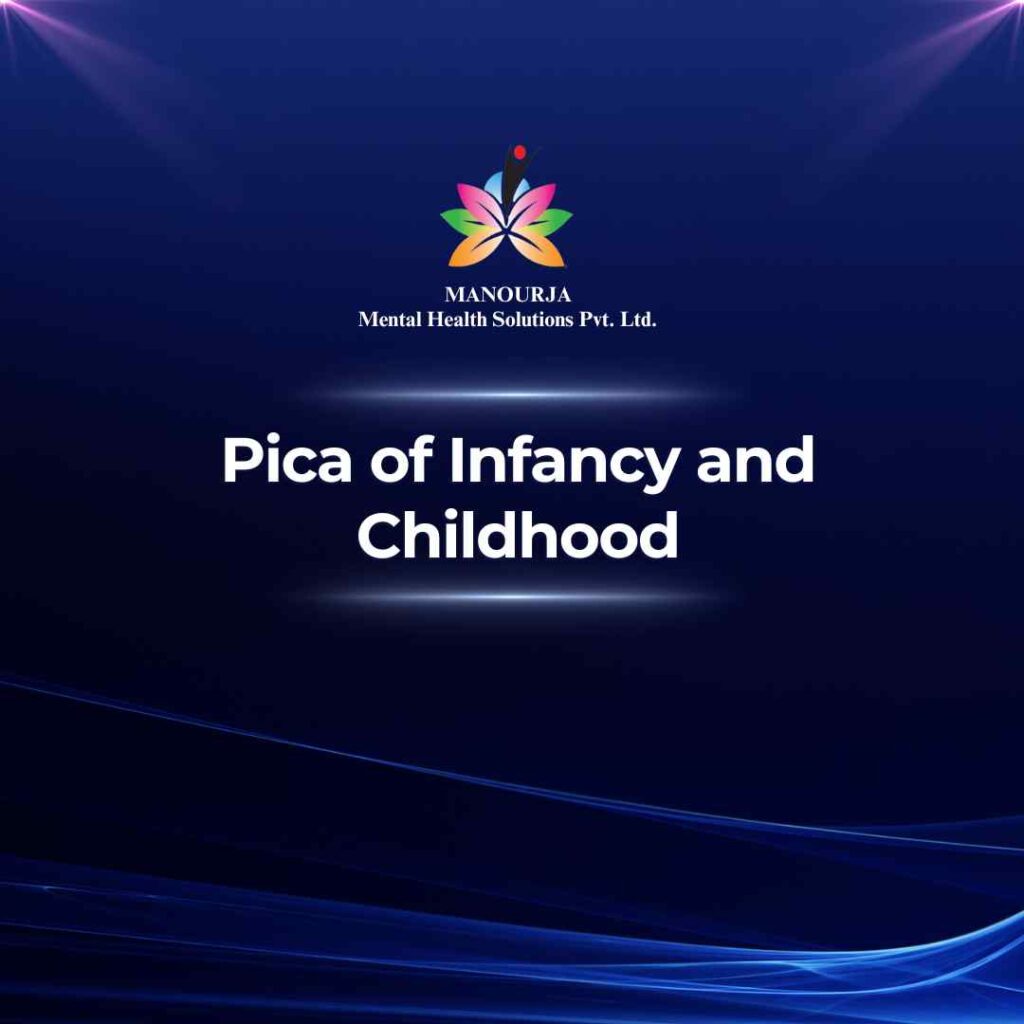Pica of Infancy and Childhood

Pica is a psychological disorder characterized by the persistent eating of substances that have no nutritional value. In infants and children, pica involves the compulsive ingestion of items such as dirt, clay, chalk, hair, ice, paper, paint chips, and other non-food materials. This behavior must continue for at least one month to be considered pica and not be part of a culturally supported or socially normative practice.
Symptoms of Pica
- Non-nutritive Consumption: The primary feature of pica is the consumption of objects or substances that are not food and provide no nutritional benefit.
- Age and Development: While young children naturally explore their environment with their mouths, pica is distinguished by persistent and inappropriate eating of non-food items beyond the toddler years.
- Health Risks: Pica poses several health risks, including poisoning (from ingesting toxic substances), lead exposure (from eating paint or soil), intestinal blockages, and infections.
- Associated Conditions: Pica often occurs alongside other developmental disabilities, mental health disorders, or nutritional deficiencies, which may contribute to or exacerbate the behavior.
Forms of Pica
Pica can vary widely in terms of the substances consumed, but some common forms include:
- Geophagia: Eating soil or clay.
- Trichophagia: Eating hair, which can lead to trichobezoar (hairball in the stomach).
- Amylophagia: Eating starches like raw potatoes or cornstarch.
- Lithophagia: Eating stones or pebbles.
- Pagophagia: Compulsive consumption of ice.
Treatment of Pica
The approach to treating pica in children involves addressing both the behavior and any underlying causes or associated conditions:
- Medical Evaluation: An initial step is a thorough medical evaluation to check for and treat any physical complications (like lead poisoning or intestinal blockages) and to assess for nutritional deficiencies that might be driving the behavior.
- Behavioral Interventions: Behavioral strategies may include positive reinforcement for appropriate eating, aversion therapy, or environmental modification (such as removing pica materials from accessible areas).
- Nutritional Management: If nutritional deficiencies are identified (commonly iron or zinc), dietary supplements or changes may be prescribed to address these deficits.
- Psychological Therapy: For children with developmental or mental health disorders, therapy can help manage behaviors associated with pica. This might involve cognitive-behavioral therapy (CBT) to modify the impulse to ingest non-food items.
- Family Education and Support: Educating families about pica and its risks is crucial. Parents and caregivers need strategies for managing and monitoring the child’s behavior, as well as support in implementing treatment plans.
- Safety Measures: Child-proofing areas and ensuring that harmful substances are out of reach can help prevent the ingestion of dangerous items.
Effective treatment of pica in children typically requires a multidisciplinary approach, involving pediatricians, nutritionists, psychologists, and other specialists to address the wide range of factors associated with the disorder. Early intervention is critical to prevent serious health consequences and to promote healthier developmental outcomes.
At MANOURJA, we believe in the transformative power of counseling. Our experienced therapists offer a safe and supportive space where you can explore your thoughts, emotions, and challenges. Through personalized counselling sessions, we’ll work together to develop coping strategies, build resilience, and achieve lasting positive change. Discover the path to a healthier, happier you with MANOURJA counselling services.
MANOURJA Rehabilitation Services
At MANOURJA, we’re dedicated to helping you in rebuild your life, after difficult times. Our rehabilitation services focus on understanding what you need to move forward, whether you’re recovering from addiction, trauma, or any psychological – social challenges. We create personalized plans, that are all about helping you, regain your strength and find hope again. With a caring team by your side, you’ll have the support to make real progress and take steps toward a brighter, healthier future
